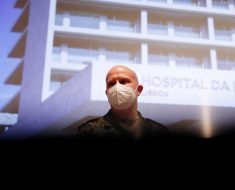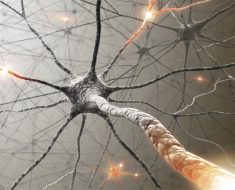According to research, approximately 17 percent of women with early-stage breast cancer undergo this type of surgery.
The recovery time from a double mastectomy can vary from person to person, but it typically takes 4 to 6 weeks.
Some surgeries involve removing the breast tissue but saving the nipple, while others remove the whole breast. More radical mastectomies also remove chest muscle and, rarely, the lymph nodes.
Many women also undergo breast reconstruction, which can add additional time and complexity to their recovery.
In this article, we provide information and tips on recovering from a double mastectomy.
How to prepare

A doctor will help a person prepare for a double mastectomy by:
- explaining the procedure in detail
- answering questions
- taking a medical history
- performing a physical examination
- doing blood tests or other tests if necessary
The doctor may also instruct the individual to avoid eating or drinking for a certain amount of time before the surgery. Anyone taking aspirin or other blood-thinning medications may need to stop taking them for several days or weeks before the procedure.
Other preparations to consider include:
- Packing: A mastectomy typically involves staying for a maximum of 3 nights in the hospital. In preparation for the surgery, the individual will need to pack a hospital bag for this stay. It is best to include loose-fitting tops, cardigans, and zip-up hoodies as these clothes allow room for the drainage tubes following surgery.
- Buying bras: Some women who are not having reconstruction surgery may wish to wear prosthetics. However, it is a good idea to wait for a few weeks after surgery before buying mastectomy bras, as the chest size will change as the swelling goes down. After the surgery, the doctor may prescribe specific bras, as medical insurance may cover these prescription items.
- Preparing the home: It can be helpful to cook and freeze meals in advance of the surgery and ask friends or family to help with cooking and cleaning. Placing books, bottles of water, and other important items within easy reach of the bed or sofa can also help.
- Driving home: It is essential to arrange a ride home because driving after being under anesthesia is dangerous. The seatbelt may hurt the newly sensitive chest area, so bring a small pillow to place between the chest and belt.
- Seeking support: Knowing where to get post-surgery support can help some people stay calm before the procedure. Make a list of helpful organizations and contacts, including cleaning services, taxi companies, and pet sitters. The American Cancer Society offer a range of support programs throughout the United States.

Following the surgery, the person will spend some time in the recovery room. Here, the medical staff will monitor their heart rate, blood pressure, and breathing.
Although there will be several drain lines coming from the chest, the area will typically be numb. The individual will receive pain medication to manage any discomfort.
Following this, the person will move to a regular hospital room for up to 3 nights, where staff will continue to monitor their pain and other symptoms. During this time, people may notice unusual sensations in the chest and underarm areas.
Before leaving the hospital, individuals will get instructions on:
- showering
- removing the bandages
- caring for the drains
- using medication
- performing arm exercises
- experiencing possible side effects and complications
- booking a follow-up appointment

A double mastectomy can cause some physical side effects. There is also a risk of complications following the surgery.
Potential side effects and risks include:
- Fatigue: Many people feel tired for days or weeks after the surgery.
- Pain and stiffness in the arms: The shoulders and arms may be stiff, sore, or otherwise uncomfortable. Medications and exercises can reduce these symptoms.
- Phantom feelings: Phantom breast pain or numbness can occur after a mastectomy. It is best to speak to a doctor about this, as they may be able to prescribe medications to alleviate these symptoms.
- Lymphedema: This occurs when fluid builds up under the skin. If the surgeon removes the lymph nodes during the procedure, the individual will have a higher risk of infection and the arm swelling. Call a doctor immediately if there is swelling in the arms, fever, or any other signs of infection.
- Scar tissue: There may be a lump or hard area at the point where the surgeon made the incision. There will probably be scarring at the site of the mastectomy.
- Bleeding: All surgeries carry the risk of excess bleeding.
- Seroma: This clear fluid can collect in the breast after a mastectomy, but a surgeon can drain it. Some people receive an injection to harden the space in the breast to prevent fluid from building up.
- Depression: It is not uncommon to experience feelings of depression or a loss of sexual identity following a double mastectomy. Seek advice from a doctor or therapist if these feelings persist.
Rarely, breast reconstruction surgery may cause complications that affect or delay a person’s existing radiation therapy or chemotherapy.
Coping emotionally
Strong emotions are common among those who undergo a single or double mastectomy. These emotions can come and go and typically change over time.
Common responses include:
- sadness
- grief and mourning
- loss of sexual identity
- fear and anxiety, especially about being intimate with another person
- concerns around body image
- fear of the cancer returning, or of undergoing other types of cancer treatment
These and other responses are all perfectly valid, and it is vital to acknowledge emotions as they arise. Take time alone if necessary and seek support from loved ones. Try to engage in enjoyable activities, such as reading, socializing, and hobbies.
If feelings of constant low mood persist for 2 weeks or more, it is best to speak to a doctor or therapist. It can also be helpful to join a support group to meet other people who are in a similar situation.
Takeaway
Recovery from a double mastectomy takes time. The recovery process varies from person to person and involves both physical and emotional changes.
Before the surgery, a person can prepare as much as possible and ask family and friends to support them throughout the process. People who have any concerns about the recovery process should speak to a doctor.
Source: Read Full Article





